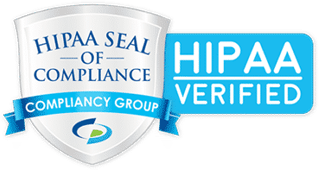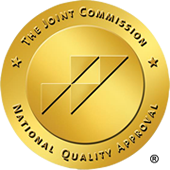Addiction and Anxiety Disorder Treatment in Texas
We will also discuss strategies for building resilience, coping with anxiety without substance use, and understanding the complex relationship between these conditions. The goal is for Origins Texas Recovery to provide insight into the challenges individuals face and how they can break the cycle for better mental health.

What Is An Anxiety Disorder?
An anxiety disorder is a mental health condition defined by chronic and intense feelings of fear, worry, or unease. These feelings are disproportionate to the actual situation and can interfere with daily life, affecting a person’s ability to function normally in various environments, such as work or social settings.
Unlike temporary anxiety which everyone experiences from time to time, an anxiety disorder leads to constant distress and may result in avoiding certain situations or places that trigger these feelings. The ongoing nature of the disorder can have a significant impact on personal relationships and overall well-being.
Understanding Anxiety
Addressing anxiety comprehensively helps individuals regain control, improving their quality of life and fostering a healthier, more balanced approach to stress. Programs like those at Origins Texas Recovery provide the support needed for individuals to manage anxiety alongside addiction, promoting lasting recovery.

Anxiety can deeply impact both emotional and physical well-being, affecting how individuals navigate their daily lives. It can manifest in various ways, influencing thoughts, behavior, and even physical sensations.
Common signs and symptoms of anxiety include:
- Persistent, excessive worry or fear
- Restlessness or feeling “on edge”
- Rapid heartbeat or palpitations
- Shortness of breath or dizziness
- Muscle tension or headaches
- Difficulty concentrating or focusing
- Irritability or mood swings
- Trouble sleeping (difficulty falling or staying asleep)
- Avoiding certain situations or places that trigger anxiety
- Fatigue or feeling drained
These symptoms reflect various ways anxiety can manifest in daily life, affecting physical health, emotional stability, and social interactions. They can fluctuate in intensity and may be triggered by specific stressors or ongoing life circumstances. When combined, these symptoms often disrupt daily routines and may intensify under stress, making it harder to function normally. Identifying such signs can be a helpful first step toward better understanding and managing anxiety.
Contact Our Admissions Team Today
Types Of Anxiety Disorders
This disorder involves constant, excessive worry about various aspects of life, such as work, health, or relationships, often without a clear or immediate cause. The worry is difficult to control and affects concentration and relaxation.
Characterized by sudden, recurring panic attacks that bring on intense fear, panic disorder often includes physical symptoms such as heart palpitations, chest pain, shortness of breath, and dizziness, which can feel overwhelming.
People with SAD experience extreme fear in social situations due to worry about being judged, embarrassed, or humiliated. This may result in avoiding social gatherings and struggling to build relationships.
These are intense, irrational fears related to specific objects or situations, like heights, animals, or flying. The fear often exceeds the real danger, leading to patterns of avoidance.
OCD involves persistent, intrusive thoughts (obsessions) and repetitive behaviors (compulsions) intended to relieve anxiety. The cycle can be disruptive and challenging to manage.
PTSD is triggered by past traumatic events, causing flashbacks, nightmares, and severe anxiety in response to reminders of the trauma.
Testimonials
![]()
![]()
![]()
![]()
![]()
Victoria H
I couldn’t recommend Origins more, I first attended their IOP program, then their residential program in South Padre. I’m writing this today a year and a half sober and going strong. Origins has literally saved my life in more ways than one.
![]()
![]()
![]()
![]()
![]()
Emily W
The clinicians are knowledgeable and skilled in a way that is always helpful and never harmful. This program brought me lasting healing and freedom.
![]()
![]()
![]()
![]()
![]()
Mary L
I cannot say enough about Hannah’s House. I entered broken, tired and far more sick than I realized. I was treated with kindness, love, patience and respect by all. I was so frightened to go but sad to leave, that speaks volumes. Thank you from the bottom of my heart to all who put me back together, I am eternally grateful.
![]()
![]()
![]()
![]()
![]()
Jack W
I struggled with my sobriety for over 5 years, but they were able to help me through the 12 steps of AA. I have been sober ever since my experience here. I’ll be hitting 2 years of sobriety in 22 days, thanks to this treatment center. No matter where you go, it’s all about your level of commitment towards gaining a better life ?
![]()
![]()
![]()
![]()
![]()
Jazmine R
Origins was exactly what I needed. The staff were incredibly knowledgeable, compassionate, and helpful. They come with years of experience and consider each individual they’re helping. If you’re looking for a facility that will truly care as much as you/your parents do, or are desperate for a miracle — I can’t recommend Origins more! ❤️
Anxiety and Addiction Statistics
Anxiety disorders are the most prevalent mental health conditions globally, impacting approximately 301 million people in 2019. The COVID-19 pandemic contributed to a 25% rise in anxiety and depression rates worldwide. Anxiety disorders are more commonly experienced by women than men. However, only about 1 in 4 individuals with anxiety disorders seek treatment.
In terms of addiction, nearly 50 million Americans struggled with substance use disorders (SUDs) in the past year. Alcohol use disorders are the most widespread, affecting 29.5 million people. Additionally, about 70.3 million people aged 12 and older used illicit drugs in the past year. Mental health issues are strongly connected to substance use, with nearly 1 in 4 adults experiencing any form of mental illness in the past year.
The Relationship Between Anxiety Disorders and Substance Abuse
On the other hand, people with substance use disorders (SUDs) may develop heightened anxiety due to the physiological effects of drugs or alcohol, withdrawal symptoms, or the stress of managing their addiction. This creates a feedback loop, where each condition exacerbates the other.
Successfully addressing both anxiety and addiction requires a treatment approach that considers both factors and their influence on each other. By focusing on the underlying causes of both conditions and providing healthy coping mechanisms, individuals can break the cycle of substance use and anxiety, leading to improved overall well-being and lasting recovery.

How Does Anxiety Affect Substance Abuse?
The connection between anxiety and substance abuse also extends to social situations, where anxiety about interacting with others may lead some to self-medicate to feel more comfortable or less inhibited. This pattern can be difficult to break, as substances provide immediate, though short-lived, relief from uncomfortable feelings.
Without addressing the root cause of anxiety, such as stress management or healthy coping skills, the cycle of substance use continues to persist, reinforcing both conditions. Understanding this relationship is important for developing effective strategies to manage both anxiety and substance use.
Diagnosing Anxiety and Addiction
For addiction diagnosis, professionals look for patterns of dependency, including tolerance, withdrawal symptoms, and failed attempts to quit. Since anxiety and addiction often influence each other, the assessment must consider how both conditions interact.
By evaluating the relationship between anxiety and substance use, healthcare providers can create an accurate diagnosis and develop a treatment plan that addresses both issues, improving the chances of long-term recovery and emotional well-being.

Dual Diagnosis Treatment: for Anxiety and Addiction
A tailored treatment plan helps individuals develop healthy coping mechanisms to manage anxiety without relying on substances. Cognitive-behavioral therapy (CBT) and other therapeutic methods can assist in addressing thought patterns that contribute to both anxiety and addiction.
The goal of dual diagnosis treatment is to break the cycle of substance use and emotional distress, supporting long-term recovery by helping individuals build resilience and improve emotional regulation.
Nationally Recognized & Accredited




Find Healing at Origins Recovery
Our caring and experienced staff understand the complexities of addiction and mental health and provide a supportive environment for healing. By integrating both psychological and physical aspects of recovery, clients can develop healthier coping mechanisms, gain a deeper understanding of themselves, and achieve sustainable recovery.
For more information or to begin your journey toward healing, contact us today to learn how we can help you find lasting recovery and well-being.













